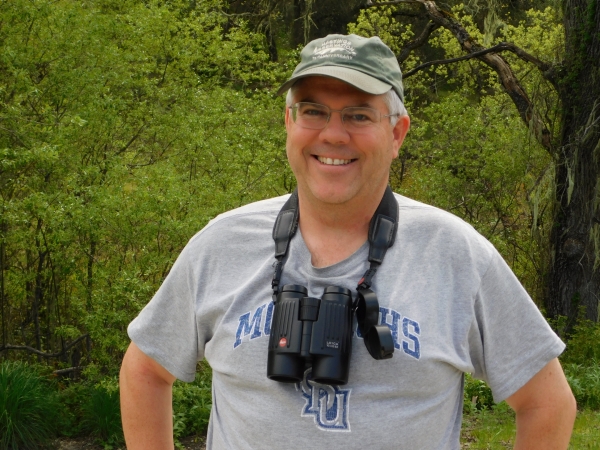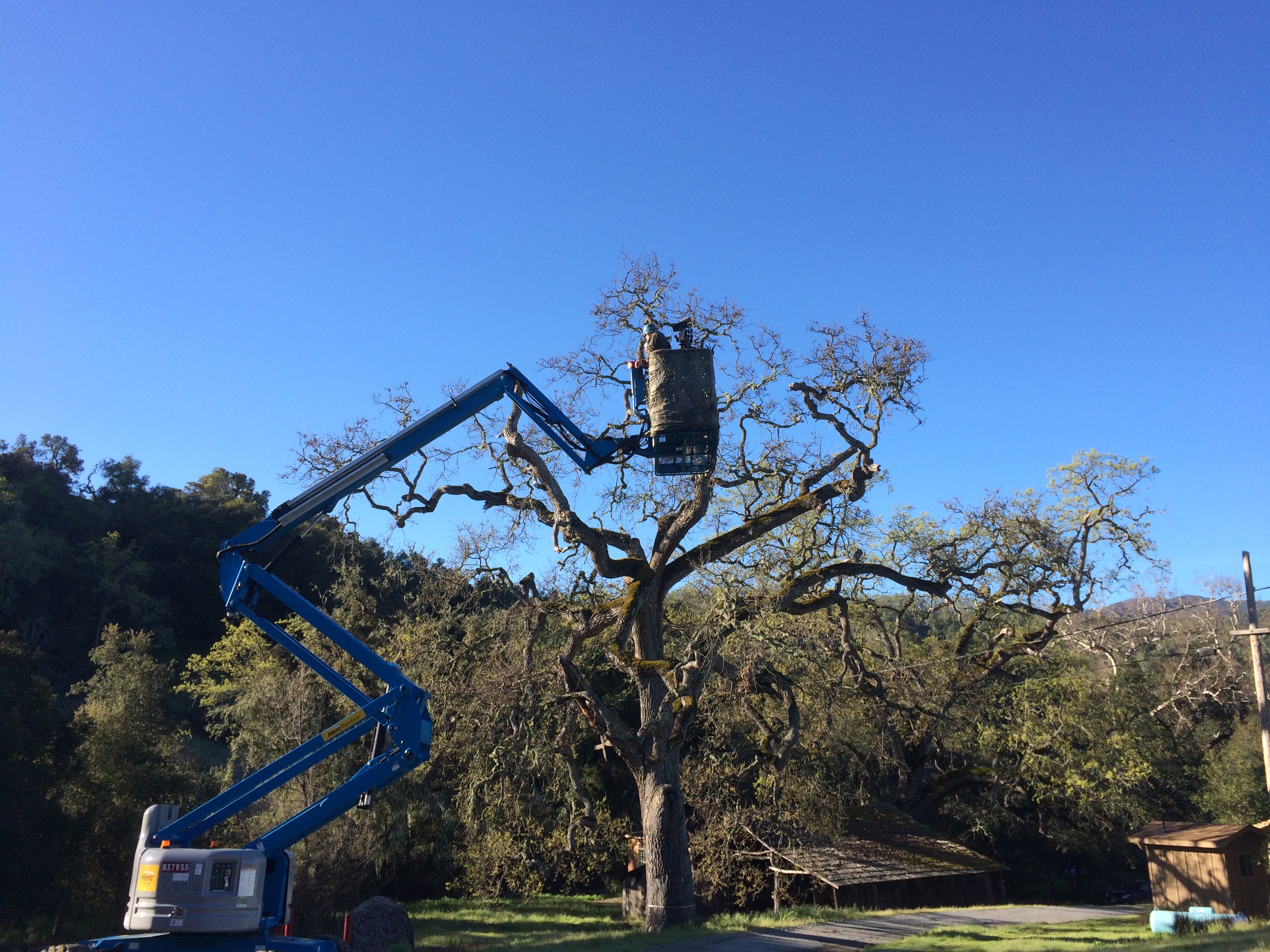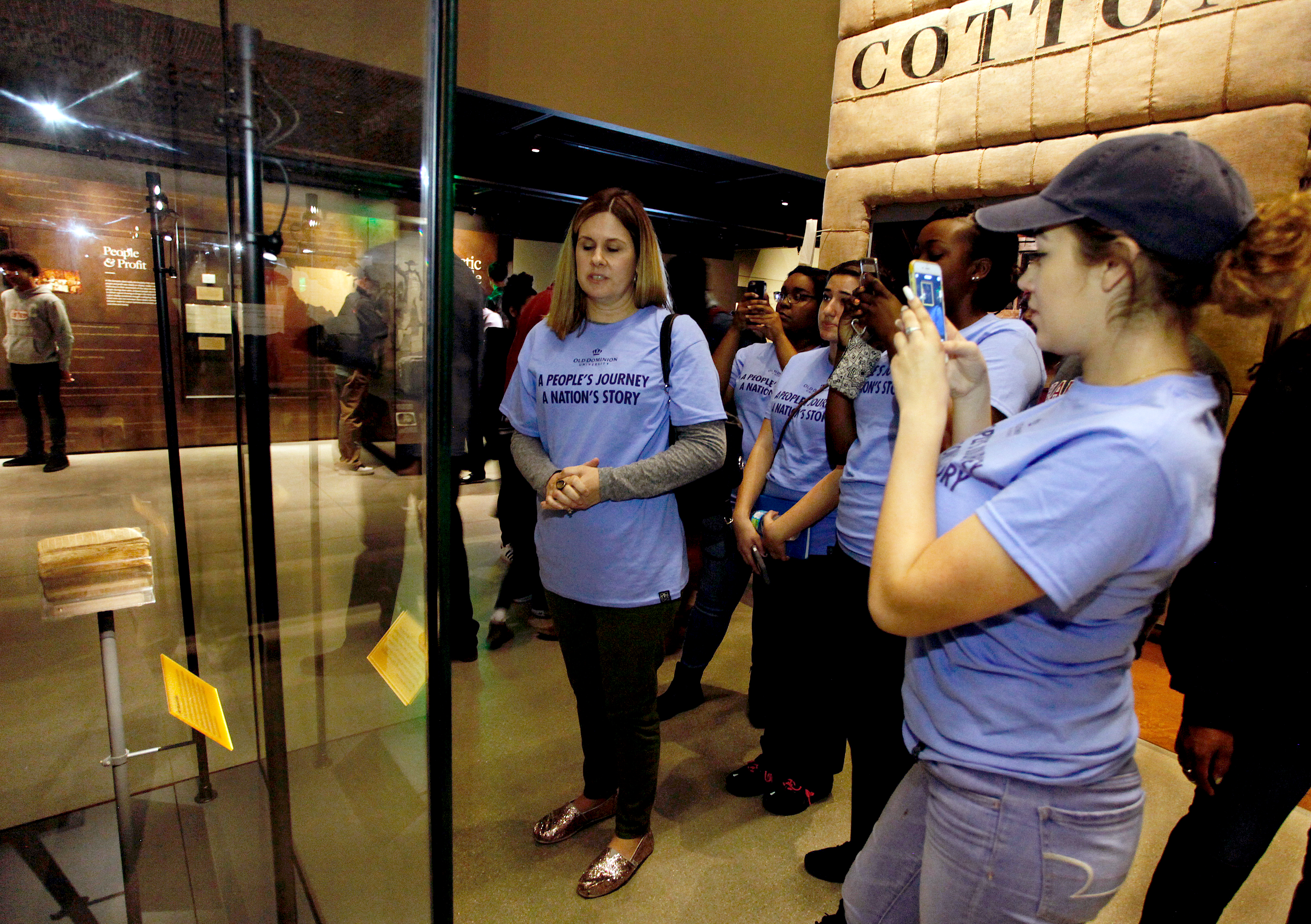BBC Interviews ODU's Eric Walters for its program 'Animals Behaving Badly'
April 06, 2017
 Eric Walters, at the Hastings Natural History Reservation in California
Eric Walters, at the Hastings Natural History Reservation in California
 The BBC crew uses a crane to shoot the high-stakes battle over acorns between woodpeckers, squirrels and jays
The BBC crew uses a crane to shoot the high-stakes battle over acorns between woodpeckers, squirrels and jays
Old Dominion University biologist Eric Walters was interviewed in late March for an upcoming appearance on the BBC program "Animals Behaving Badly."
For the past five years, Walters has been the principal investigator on a research project about the evolution of social behavior in acorn woodpeckers, a highly social bird that has evolved to live in large family groups as a way to hoard acorns and other foodstuffs.
But the documentary crew, which filmed Walters and his research team the week of March 27 to April 1 at the Hastings Natural History Reservation in California, wasn't interested in woodpeckers.
The "badly" behaving animals it spotlighted are native squirrels and jays, which have engaged in a long war with the acorn woodpecker family groups, trying to steal their stores of food.
"It's a constant concern for these woodpeckers," Walters said. "Granary trees may have as many as 10,000 acorns stored, collected by a single family group. They do what they can to protect their stores."
The BBC crew filmed the squirrels and jays in troublemaking action on its visit in late March, and will interview Walters and his research team when they return to California.
"Meet the animal outlaws - from an alpha chimpanzee's reign of terror to a dolphin with a puffer fish drug problem and a crab using entrapment to get his wicked way," the British public broadcaster says in promotional materials for the "Animals Behaving Badly" episode. "These are the gangsters, addicts and scoundrels of the animal world."
Rather than merely spotlighting wildlife rebels, "Animals Behaving Badly" demonstrates how these interactions reflect complex and amazing evolutionary science at work.
The appearance on "Animals Behaving Badly" will be his second appearance on BBC this year.
Walters, an assistant professor of biological sciences who joined ODU in 2011, researches behavioral and conservation biology. Five years ago, he became principal investigator of a four-decade-long observation of acorn woodpecker populations at the University of California at Berkeley's Hastings Natural History Reservation, a 2,500-acre nature preserve in Carmel Valley.
His current study uses cutting-edge tracking technology, genetic analysis and 40 years of observations of banded birds to understand why some woodpeckers do not reproduce but instead serve as "helpers," feeding young that are not their own.
The food stores that helpers protect are often passed down from generation to generation, and play an important role in the social order of acorn woodpecker populations, Walters said. If a group of woodpeckers were to lose their giant store of acorns, "that group can go from being the top dynasty in the population, to the bottom."
"Animals Behaving Badly" is a three-part documentary special which will air on BBC ONE in September.
BBC Interviews Walters for Second Program
Eric Walters was featured on a second BBC program earlier this year, about a completely different, and more somber, topic.
The BBC Program "Witness" interviewed the ODU biologist following the death of the killer whale Tilikum at SeaWorld in Orlando. Tilikum was responsible for the first recorded killing of a human by an orca. It killed again two decades later.
While a university student in Victoria, British Columbia, Walters worked part-time at Sealand of the Pacific with killer whales including Tilikum, which he remembered as friendly and curious.
However, Walters told the BBC he grew increasingly convinced that the whales were suffering psychological damage in captivity. When he left Sealand of the Pacific, he wrote letters, which he says were ignored, warning that bored, frustrated orcas could be deadly.
Two years later, Keltie Byrne, like Walters a marine biology student at the University of Victoria, slipped into Tilikum's tank and was drowned by the whale.
"I heard it on the evening news, and I had this tremendous guilt. I felt that if I worked harder getting my message out, this wouldn't have happened," Walters said.
Sealand of the Pacific closed after the incident, and Tilikum was moved to SeaWorld in Orlando.
Walters received harsh criticism for his public statements about the practice of keeping killer whales in captivity, including from his former co-workers at the marine amusement park in Canada. But his fears were validated, he said, when Tilikum was involved in another killing at SeaWorld.
Walters was featured in the 2013 documentary film "Blackfish," an exposé about orcas kept in captivity. He said that many of his former acquaintances, initially so critical of Walters, decried the practice of keeping orcas in captivity in "Blackfish."




